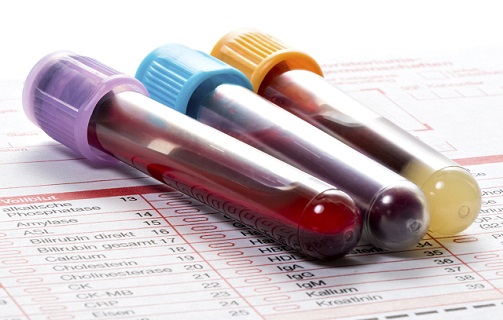 There is a health crisis that you might not know about but should—most people in the United States are suffering from a magnesium deficiency because of their lousy diets. This is a serious problem because every organ and system in the human body needs a specific level of magnesium to function properly.
There is a health crisis that you might not know about but should—most people in the United States are suffering from a magnesium deficiency because of their lousy diets. This is a serious problem because every organ and system in the human body needs a specific level of magnesium to function properly.
Magnesium is vital to health because it activates enzymes, contributes to energy production, and regulates levels of other necessary nutrients, including Vitamin D, copper, potassium, zinc, and calcium. The worst part about this crisis is that many, if not most, of the people who suffer from magnesium deficiency symptoms do not even realize that they have a problem. Even some people that take a magnesium supplement every day might be suffering from this problem.
Recommended Daily Intake of Magnesium
One reason why many people suffer from low magnesium symptomsis that most people don’t realize how much of the mineral the average person needs. As you can see, magnesium requirements increase as we get older, but most people don’t know it. A related problem is that males and females need different amounts of the mineral.
|
Groups of People |
Recommended Daily Intake of Magnesium |
|
1 to 3 Years of Age |
80 milligrams |
|
4 to 8 Years of Age |
130 milligrams |
|
9 to 13 Years of Age |
240 milligrams |
|
Boys 14 to 18 Years of Age |
410 milligrams |
|
Girls 14 to 18 Years of Age |
360 milligrams |
|
Adult Women |
310 to 320 milligrams |
|
Pregnant Women |
350 to 400 milligrams |
|
Breastfeeding Women |
310 to 360 milligrams |
|
Adult Men |
400 to 420 milligrams |
What Are the Signs of a Magnesium Deficiency?
Everybody should be aware of the magnesium deficiency symptoms because many of us are facing this problem. The major low magnesium symptomsinclude the following:
- The first signs of a magnesium deficiency usually include dietary and digestive problems, including: nausea, lack of appetite, food allergies, and vomiting.
- This is often followed by muscle cramps, leg pains, and twitches. The muscles are affected because the body is literally raiding the magnesium stored in them to replenish its supply.

- The next group of magnesium deficiency symptoms to appear usually comes in the form of pain and soreness. These symptoms can include muscle soreness, backaches, neck pains, headaches, joint pain, and tightness in the chest. They are often accompanied by fatigue and sometimes by spasms.
- Many people and even some doctors miss the symptoms because they can involve urinary spasms, menstrual cramps, trouble swallowing, a sore throat, and an inability to deal with bright light. Sensitivity to noise and an inability to deal with stress are also notable changes.
- Another problem is that some of the symptoms might be misdiagnosed as mental illness. Fatigue, personality changes, insomnia, hyperactivity, restlessness, panic attacks, unexplained fears, inability to function properly at work or school, unexplained fears, and a bad attitude often develop. Some people also report unexplained tingling and abnormal sensations.
- The heart and the cardiovascular system can also be affected. High blood pressure, heart palpitations, angina, and similar problems can result. These problems are often accompanied by anxiety attacks.
What Causes Magnesium Deficiency?
It is hard enough for a person eating a healthy diet of natural foods to get enough magnesium. Unfortunately, most Americans do not eat natural foods; they eat processed foods. Even those that eat a lot of fresh fruits and vegetables do not get enough magnesium because modern farming processes deplete the soil. Freezing and shipping can also lower mineral levels in food.
To make matters worse, stress and anxiety can deplete magnesium in our bodies. People get hit by a nasty double whammy when they don’t get enough magnesium and they live stressful lives that deplete their magnesium levels.
The modern American diet is high in foods that can cause decreases in magnesium. These include soda pop, coffee, energy drinks, alcohol, and sugar. These are the substances that stressed out people are likely to consume too much of.
Take a look in your medicine cabinet. There are some medications, including antibiotics, diuretics, and cancer drugs, that can cause one. If you are taking one of these, ask your doctor about it.
How to Diagnose Magnesium Deficiency
You will need to get a blood test done to determine if you have a magnesium deficiency. A medical professional will draw a small amount of blood that will be subjected to a chemical test to determine the levels of magnesium present. Such a test usually has to be done at a medical facility by a professional.
Before getting the test, you may have to stop taking certain medications and supplements and stop eating certain foods. The doctor will tell you what to avoid. Persons that are afraid of hypodermic needles can have a difficult time with such a test because it involves such a device.
How to Treat a Magnesium Deficiency
In most cases, magnesium deficiency symptoms can be treated through dietary changes and supplements. This might not always work, because there are some medical conditions that can cause this problem.
Steps you will need to take:
- Increase your consumption of foods rich in magnesium. This includes dark green leafy vegetables such as spinach, nuts, peas, and whole grains. Usually five servings of such foods a day will suffice.
- Check with your doctor to see if you have any health problems that could be causing the magnesium deficiency. There are some serious health problems that can cause one.
- Increase your intake of calcium and potassium. Chances are if you have magnesium deficiency symptoms, you could have deficiencies of these nutrients.
- Stop drinking alcohol and soda pop. Excessive alcohol consumption can deplete magnesium. So can drinking lots of sugary beverages like pop.
- Healthcare providers sometimes suggest that those with a deficiency take magnesium supplements. There are many such supplements available; some experts recommend powdered supplements that can be mixed with food. Such supplements are easier to digest and could be more effective than pills or capsules.
